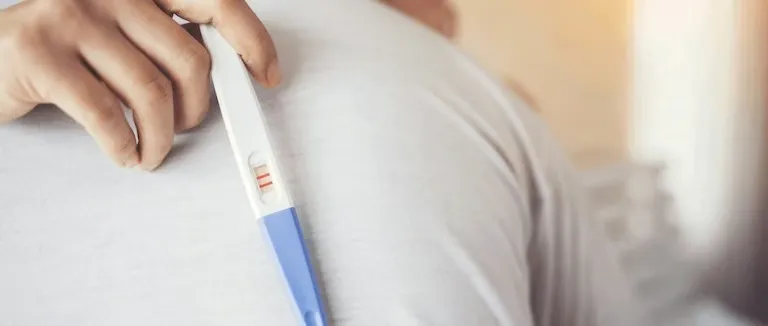What Are Blocked Fallopian Tubes? Why Choose Liv Hospital for Fertility Care?
-
What Are Blocked Fallopian Tubes?
-
Causes of Fallopian Tube Blockage
-
Symptoms of Blocked Fallopian Tubes
-
How Are Blocked Tubes Diagnosed?
-
Treatment Options for Blocked Tubes
-
Fertility After Treatment: What to Expect
-
Why Choose Liv Hospital for Fertility Care?
What Are Blocked Fallopian Tubes?
Understanding the Role of Fallopian Tubes in Pregnancy
The fallopian tubes consist of two narrow tubes that link the ovaries to the uterus. During a woman’s monthly cycle, an egg is released from the ovary and travels through the fallopian tube, where fertilization by sperm typically occurs. This fertilized egg then moves into the uterus to implant and develop. If the fallopian tubes are blocked, this natural process is disrupted, leading to difficulties in achieving pregnancy.
What Happens When They’re Blocked?
A blocked fallopian tube—also known as tubal occlusion—can prevent the egg and sperm from meeting. Depending on whether the blockage is partial or complete, it may result in tubal infertility. In cases of hydrosalpinx, a fluid-filled swelling of the fallopian tube, the obstruction can also negatively impact IVF outcomes by releasing inflammatory substances into the uterus.
Causes of Fallopian Tube Blockage
Infections (Like PID and STIs)
Pelvic Inflammatory Disease (PID), often caused by sexually transmitted infections such as chlamydia or gonorrhea, is a major contributor to tubal damage. These infections can cause inflammation and scarring, resulting in tubal blockage or distal tubal occlusion.
Endometriosis and Scar Tissue
Endometrial tissue growing outside the uterus can attach to the fallopian tubes and cause inflammation, adhesions, or scar tissue. These changes may lead to tubal disease and affect their function.
Hydrosalpinx: A Special Type of Blockage
Hydrosalpinx arises when a fallopian tube becomes obstructed and accumulates fluid. This condition can be the result of previous infections, surgery, or trauma. It often affects both tubes (bilateral hydrosalpinx) and significantly reduces fertility chances without treatment.
Symptoms of Blocked Fallopian Tubes
Can You Tell If Your Tubes Are Blocked?
Blocked fallopian tubes rarely cause symptoms. Most women discover the issue only after facing infertility. However, if hydrosalpinx is present, some women may experience mild pelvic pain or unusual vaginal discharge. So that one can track hydrosalpinx symptoms.
When Should You See a Doctor?
If you have been trying to conceive for over a year (or six months if over age 35) without success, consult a fertility specialist. A history of pelvic infections, endometriosis, or prior surgeries are additional reasons to seek medical advice.

How Are Blocked Tubes Diagnosed?
HSG (Hysterosalpingography)
One of the primary tools for diagnosing fallopian tube blockage is an HSG. This X-ray test involves injecting a contrast dye into the uterus and fallopian tubes to check for blockages or abnormalities.
Ultrasound and Laparoscopy
Advanced imaging, including transvaginal ultrasound and sonohysterography, may detect abnormalities. In some cases, laparoscopy is recommended—especially for suspected hydrosalpinx—to directly visualize and potentially treat the blocked tubes.
Treatment Options for Blocked Tubes
Can Tubes Be Unblocked?
The approach to treatment is determined by the severity and spot of the blockage. In cases of mild or proximal blockages, interventions such as selective tubal cannulation can potentially restore patency. For more complex cases, such as distal occlusion or bilateral hydrosalpinx, surgery or IVF may be more appropriate.
Surgery vs. IVF – What’s Best?
Hydrosalpinx surgery involves removing or clipping the affected tubes to prevent fluid from affecting embryo implantation. This is often followed by IVF for higher success rates. In other cases, IVF without surgery may be attempted but with lower chances of success.
Learn more about IVF at our IVF center.
What Happens If Only One Tube Is Blocked?
If the other fallopian tube is healthy, natural conception is still possible. However, your specialist may monitor ovulation and recommend assisted reproductive techniques if conception doesn't occur within a reasonable time.
Fertility After Treatment: What to Expect
Can You Get Pregnant Naturally?
Natural pregnancy may be possible if at least one tube is functional and the underlying cause has been treated. However, this depends on various factors, including your age and overall reproductive health.
IVF Success with Blocked Tubes
For many women with blocked or damaged fallopian tubes, IVF offers the best chance of pregnancy. It bypasses the fallopian tubes entirely, offering a safe and effective option for those facing tubal infertility due to hydrosalpinx.
Why Choose Liv Hospital for Fertility Care?
Expert Doctors and Modern Facilities
At Liv Hospital’s Obstetrics and Gynecology department, our multidisciplinary team includes fertility specialists, reproductive endocrinologists, and skilled laparoscopic surgeons. We provide tailored care based on the latest diagnostic and treatment options.
Personalized Care for International Patients
We understand the challenges international patients face. From multilingual support to travel assistance, we ensure a seamless journey toward parenthood. Explore more about infertility and how we can help.
FAQs About Blocked Fallopian Tubes
Is Hydrosalpinx Dangerous?
While not usually life-threatening, hydrosalpinx can impair fertility and IVF outcomes. Treatment is essential for improving pregnancy chances and reducing complications.
Do Blocked Tubes Cause Pain?
Most cases are asymptomatic. However, some women with hydrosalpinx report pelvic discomfort or pressure, especially during menstruation or intercourse.
Can Blocked Tubes Unblock Naturally?
In rare cases, partial blockages may resolve on their own, especially after treating underlying infections. However, medical or surgical intervention is often required.
* Contents of this page is for informational purposes only. Please consult your doctor for diagnosis and treatment. The content of this page does not include information on medicinal health care at Liv Hospital







